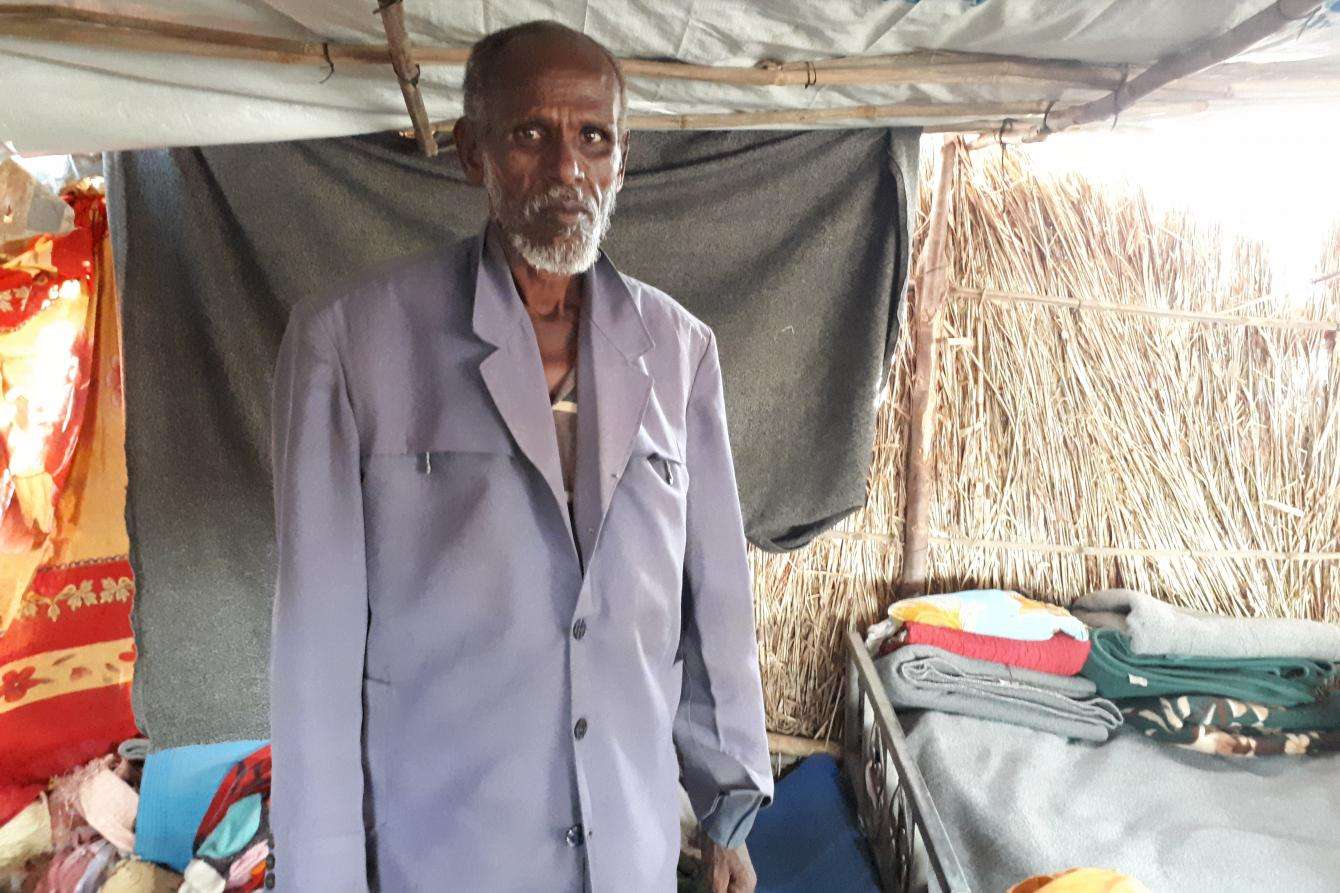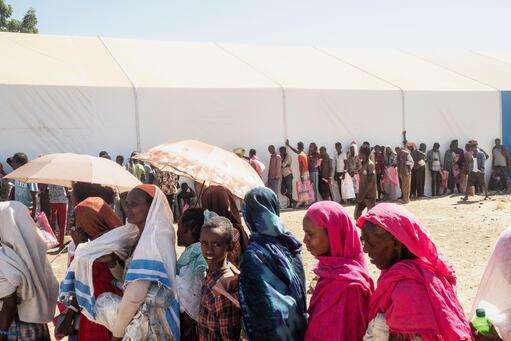Three months have passed since Maryam and her family fled the conflict in Tigray, Ethiopia, and crossed the border into Hamdayet, Sudan. Three months since she and her family had their last decent meal. While the refugees in Hamdayet have many unmet needs in the refugee reception center, the scarcity of food is especially dire.
In recent days, people tired of begging for adequate access to food have started to demonstrate.
“If they don't want to feed us then they should take us to someone who does,” says Maryam. “Every day they tell us the food is coming and every day it does not come. The youth protested to get food, but they tell them it is not right and stop them.”

Since November 2020 more than 61,000 people who fled violence in Tigray, Ethiopia, have registered as refugees after crossing the border into Sudan. Since then, many have been relocated from the border town of Hamdayet to Um Rakuba and Al Tanideba, permanent refugee camps in Sudan’s Gedaref state. However, Doctors Without Borders/Médecins Sans Frontières (MSF) estimates that some 10,000 to 12,000 refugees are still scattered in and around Hamdayet without proper shelter and with scant access to basic needs such as water, food, blankets, and sanitation. Some of them have been there for months. And although the number of new arrivals has significantly decreased over the past few weeks, there are still more people arriving every day.
Stuck in limbo
According to UNHCR guidelines, refugee camps should not be located near border areas due to safety concerns. From the very beginning of the influx of people, authorities implemented a transit location in the border area, where people who arrived would stay only a short time, before being moved to permanent camps within 72 hours. As part of that strategy, services for refugees in these border locations were kept to a minimum, with the justification that refugees would only stay a few days.
But the process of identifying and preparing appropriate spaces for permanent camps, and the scale-up of essential services within them, began late and has progressed slowly. Humanitarian assistance in the border town remains substandard. And refugees are living in unhygienic and appalling conditions, with insufficient access to water, food, health care, education, social services, and proper shelter. The situation has taken a heavy toll on both the physical and mental health of the people stuck in limbo at the border.

“These people had to flee a conflict zone, with many directly or indirectly affected by violence, often not knowing where their family is or if they are still alive,” says Crystal van Leeuwen, MSF emergency medical advisor. “These people were looking for safety. The current situation in Hamdayet has only created more frustrations, anxiety, and fear for this vulnerable group and is having a detrimental impact on their health.”
There is no proper camp set up, with no tents or shelter provided. People are being haphazardly scattered in the area, with several families living in the same communal shelter. Some have found refuge with residents of the village, or are able to build themselves huts with whatever materials they could find to take shelter from the very high temperatures.
Many others, however, are sleeping in the open. Relief items such as blankets have been distributed sporadically; for example, a survey in January showed that just over one in 10 people had received jerry cans to collect and store drinking water. Those who fled Tigray alone, without any family members, were not eligible to receive them at all.

The dangers of searching for food
Refugees in Hamdayet are provided the same hot meals of porridge and lentils every day. The portions are small, and though people are supposed to receive food twice daily there is often not enough to go around.
“Sometimes the food runs out before all the people have received their portion,” says Medhin, a 60-year-old refugee in the temporary camp.
Meanwhile the refugees desperately look for other means to feed their families. Some people have chosen to endanger their lives going back and forth across the border to find food, or bring firewood from Tigray that they can sell in Sudan.
“In search for food I crossed the river to Humera, in the Tigray region, to bring back food,” says a refugee in Hamdayet. “I know it is dangerous, but I would rather die trying to get food than starve.”
MSF teams have been providing medical screenings at the Hamdayet border crossing points and basic health care in the town for both refugees and residents since November. Last week, MSF found that an alarming 14 percent of pregnant and lactating women are malnourished.
This week people finally received dry food rations of sorghum, legumes, oil, and salt and have been able to cook for themselves. But it remains unclear if distributions of rations will continue for people stranded in Hamdayet, or if they’ll receive regular monthly food distributions once they are relocated to permanent camps.

An urgent need for improved services
Even if people are moved to new locations in the coming days and weeks, people are still fleeing Tigray and will need shelter, adequate basic services, and sufficient, regular food provisions as they continue to arrive in Hamdayet. The town will remain the main entry point for refugees, and inaccessible roads will make relocation to the permanent camps impossible for several months during the rainy season.
There is an urgent need to develop an appropriate plan for people to stay in acceptable conditions with access to water, sanitation, and shelter, allowing adequate supplies to be distributed
“Refugees will never be relocated within the proposed 72 hours and they should receive proper care wherever they are staying,” says Van Leeuwen. “Services and assistance need to be planned for and provided in Hamdayet with this in mind. People should be treated with dignity [and] respect and their basic humanitarian needs should be addressed as soon as they manage to cross the border.”




